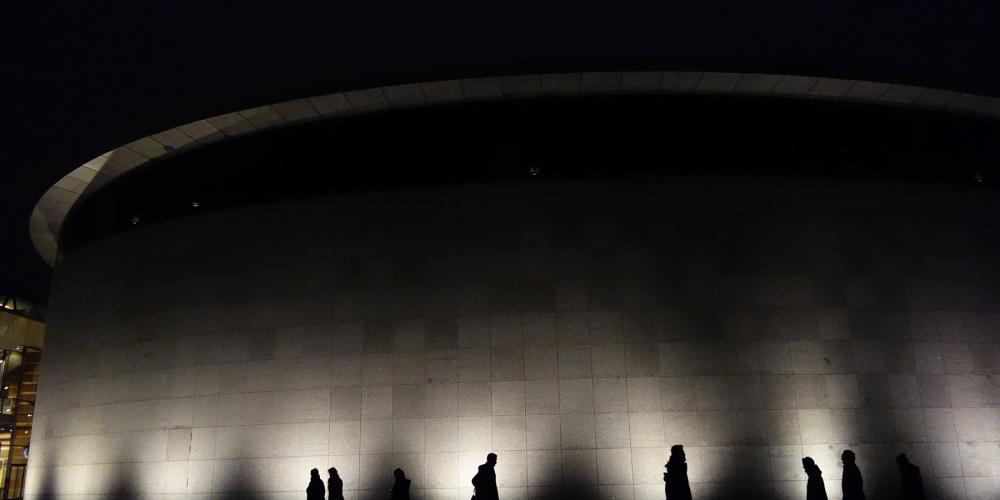
Night spaces: migration, culture and IntegraTion in Europe (NITE)
This transdisciplinary collaboration focuses on eight European cities, to understand the key question of how night spaces are dynamically produced, imagined, experienced and narrated by migrant communities in Europe.
It considers material, symbolic and virtual public spaces associated with and created by migrant communities in night-time urban settings, which are understood as being important sites of crisis and regeneration, memory and heritage, community solidarity and growth.
Authorities have historically wrestled with the issue of night-time control, and the hours after dark are often still perceived as harbouring threats to public order and potential criminality. However, the current policy attention to night-time urban economies, exemplified by the creation of the office of Night Mayor (Amsterdam, 2014) and Night Czar (London, 2016), illustrates the increasing interest in the potentialities of the urban night. Harnessing this growing interest, NITE’s transdisciplinary, humanities-led research will contribute with otherwise overlooked evidence on the production, experience and narration of migrant night-spaces, adding to the timeliness of its approach.
The project covers night spaces in cities in the Netherlands, Ireland, UK, Germany, Denmark and Portugal, considered intersectionally within the context of migration with questions of race and ethnicity, gender and sexuality, class, and age. NITE considers how migrants’ experiences in public spaces at night and the stories that emerge from them can productively inform current and future debates, policies and practices. Thus, it contends that night-time culture (expressed through e.g. music, film, digital platforms, performance) opens up new opportunities and spaces of belonging and intercultural understanding.
Through a programme of community co-designed cultural events and activities, and close engagement with policy-makers, NITE aims to contribute to policy approaches to night-time economies, releasing the potential night spaces offer in creating more inclusive cities. With migration a defining characteristic of contemporary urban life, key and often polarizing in current policy, political and public debates in Europe, NITE aims to support community wellbeing and better integration at local, national and transnational levels.
The Leiden team will research migrant night cultures in Amsterdam and Rotterdam. UCL will focus on LGBT+ migrant communities and night spaces in London. The Leuphana team (in conjunction with Humbolt University) will study migrant bike couriers at night within Berlin’s smart economy. Aarhus will undertake comparative research on migrant youth and questions of belonging, surveillance and policing with Lisbon. The Limerick team will study African migrants’ community music making in Cork and Galway.
Dr. S.L.A. Brandellero
Project Leader
Leiden University
Netherlands
Project Partners
Dr. S.L.A. Brandellero
Project Leader
Leiden University
Netherlands
Ben Campkin
University College London
United Kingdom
Manuela Bojadzijev
Leuphana University
Germany
Derek Pardue
Aarhus University
Denmark
Ailbhe Kenny
Mary Immaculate College, University of Limerick
Ireland